Here is the list of best Tumblr alternatives to try in 2022. What’s your best Tumblr alternative for 2022? That question is bound to come up as more and more people are finding out what a great blogging platform it is. The thing is, there really isn’t one alternative that works for everyone. There’s a new batch of social networks popping up every year and some are destined to fail while others become very successful.
What’s the most popular microblogging platform in 2022? If you ask this question on Google or any other search engine, it’s almost guaranteed that you’ll see Tumblr as one of the top search results. Tumblr started out in 2007 as a place to share videos and photos with links, just like Twitter, but it has since grown into much more than that.
10 Best Tumblr Alternatives
Tumblr is a massive blogging network or social networking site that has over 520 million blogs. The site has been experiencing a decline for years and a growing number of bloggers and marketers are seeking alternatives. We take a look at 10 of the best Tumblr alternatives in the year 2022 and why you should start to explore these new platforms now. The most common reason for people to look for Tumblr alternatives is NSFW posts and restrictions after Verizon Media acquired Tumblr.
1. Reddit

Think of Reddit as an Internet message board divided into countless subcategories, each with its own forum. Instead of sharing stories, users share links, images, and videos. Because Reddit has a massive audience, your content will be seen by thousands of people who visit its pages every day.
The site has an enormous following and is a destination for brands that want to connect with passionate communities. It’s also how trends are born. Most memes start on Reddit before spreading across all forms of social media, so it’s valuable to keep your finger on its pulse. This social network can make or break a business, especially if you link your brand name with negative sentiment.
Pros
- Reddit is a very active site, with the different subreddits being the most popular.
- The site allows the user to post content in almost every form
- There are many communities online that cater to niche interests.
- Leaks are often posted on the first site.
Cons
- Popular subreddits usually have strict moderation policies in place.
- New users may not be able to make posts or comments in certain communities until they are permitted to.
2. Pinterest

If you’re looking for a social media alternative to keep things more professional, Pinterest is worth a look. The platform allows users to collect and organize images of things they find interesting (from DIY projects to inspirational quotes) through their own pinboards or other people’s boards. And it also gives users an opportunity to connect with others who share similar interests and build virtual scrapbooks of all of their shared past experiences as well as plans for future activities.
Pros
- Content promotion is a huge part and it is also built to give you helpful insights on how best to promote your content.
- User-made boards can be accessed privately and shared with other users.
Cons
- Videos download option is not available
3. WordPress
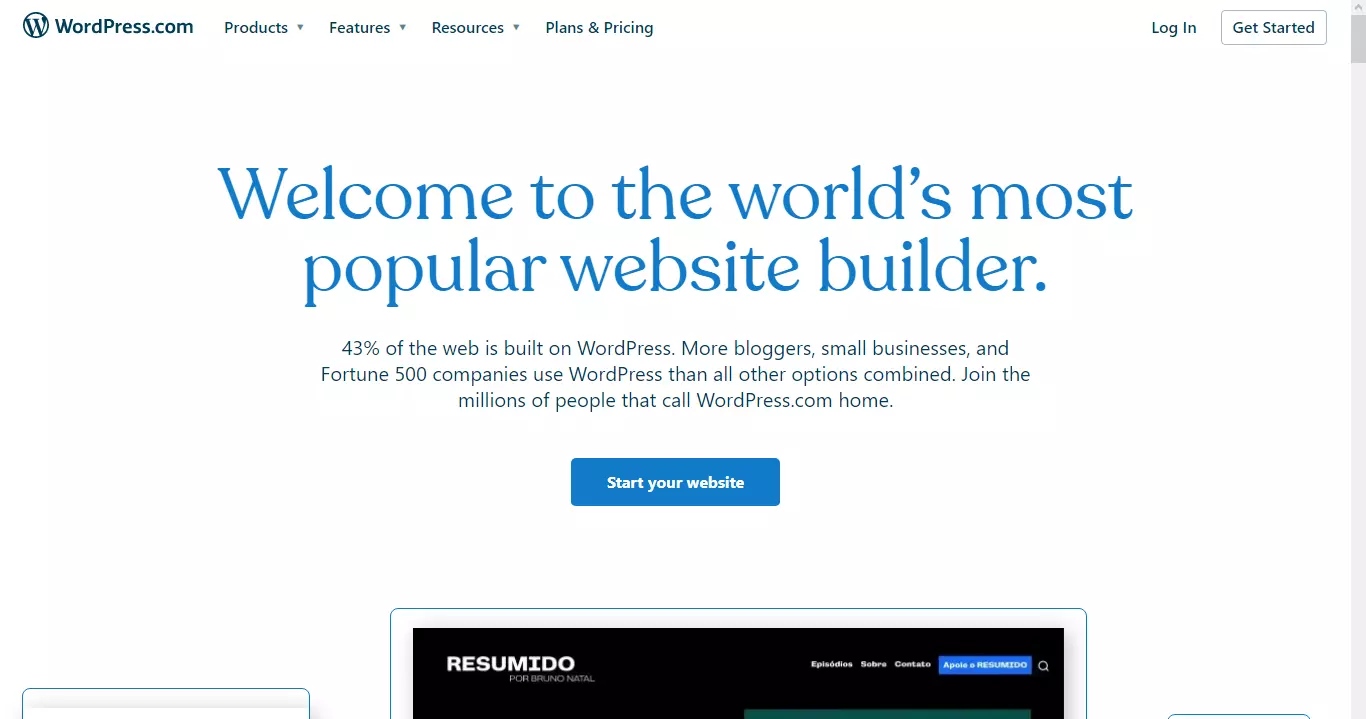
After receiving its first $12,000 investment in 2005, WordPress found itself dominating 40% of the market just five years later. The publishing platform has grown by leaps and bounds since then, and it’s now used by more than 25% of all websites. And because it’s so easy to create a website on WordPress, there are thousands upon thousands of different options for blogging sites that function as a sort of Tumblr alternative. There are more than 1.3 billion websites that are using WordPress right now which is a huge number.
Pros
- Reliable hosting with built-in security to provide your site with the defense it needs.
- Can be extended with plugins that provide additional functionality
- Supports many themes
- AMP support available
Cons
- Typically speaking, blogging requires a high level of technical knowledge.
Note: If you are looking for alternatives to WordPress for your blog or website, check out this comprehensive guide that outlines the best WordPress alternatives.
4. Medium

For those of you who spend a lot of time on social media sites like Pinterest, Twitter, or Reddit, you know that they can get addicting. For some people, it’s easy to spend hours scrolling through Instagram pictures or reading news articles. But if your content consumption is high enough to distract you from work during normal hours, then maybe it’s time to seek out an alternative.
Pros
- Diverse, unique and rich content
- Content monetization
- Great built-in data analytics
- Post scheduling available
Cons
- Limited customization
- If you are new to posting content on social media, it might be difficult to get visibility for your posts.
5. Blogger
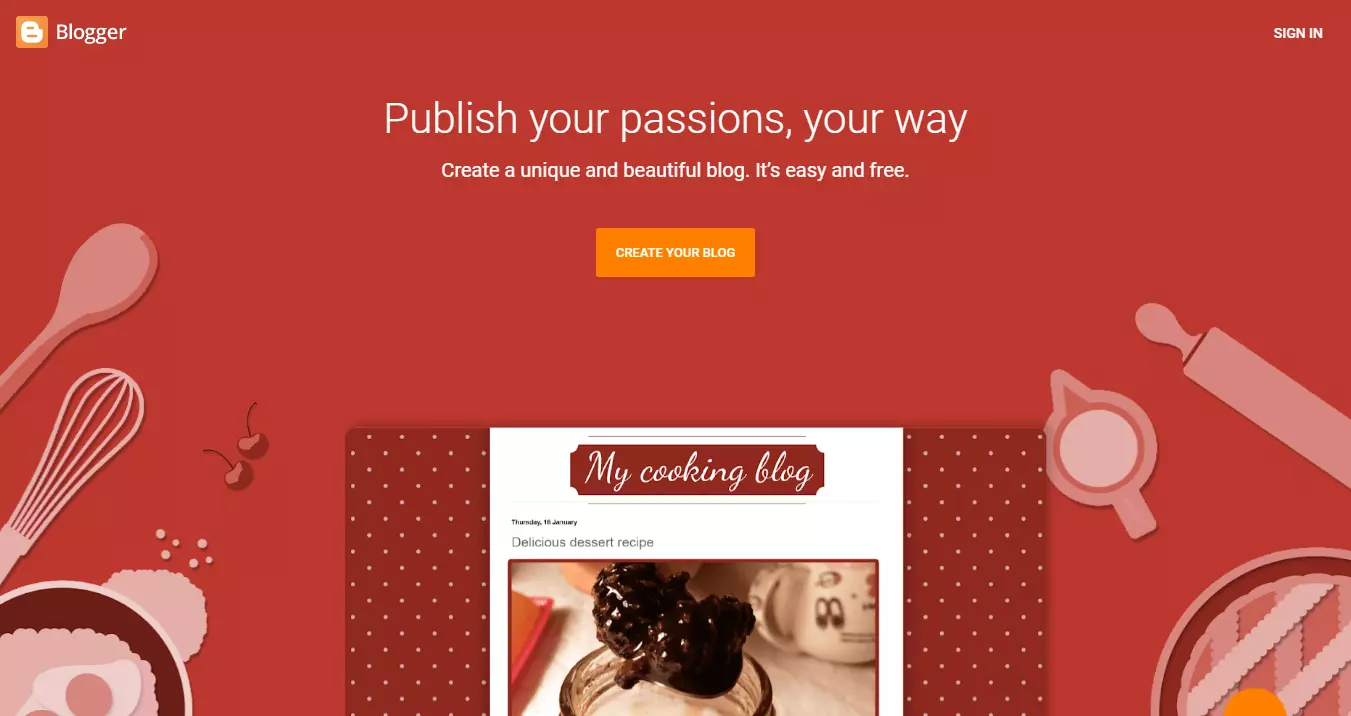
Blogger was introduced back in August 1999 by Google. The purpose of this platform was to write something for its readers. At that time you need to share the link with a person who wants to read your articles. Blogger is now evolved with time and provides much customization and auto index options. People can earn money through AdSense on it. This is another Tumblr alternatives to try in 2022.
Pros
- Free website hosting by Google
- Google Ads and Google Analytics are seamlessly integrated
Cons
- Lack of plug-ins
- Not enough themes
- AMP support not available
- Blogging might seem difficult and daunting to beginners, but it’s worth it in the end.
6. DeviantArt
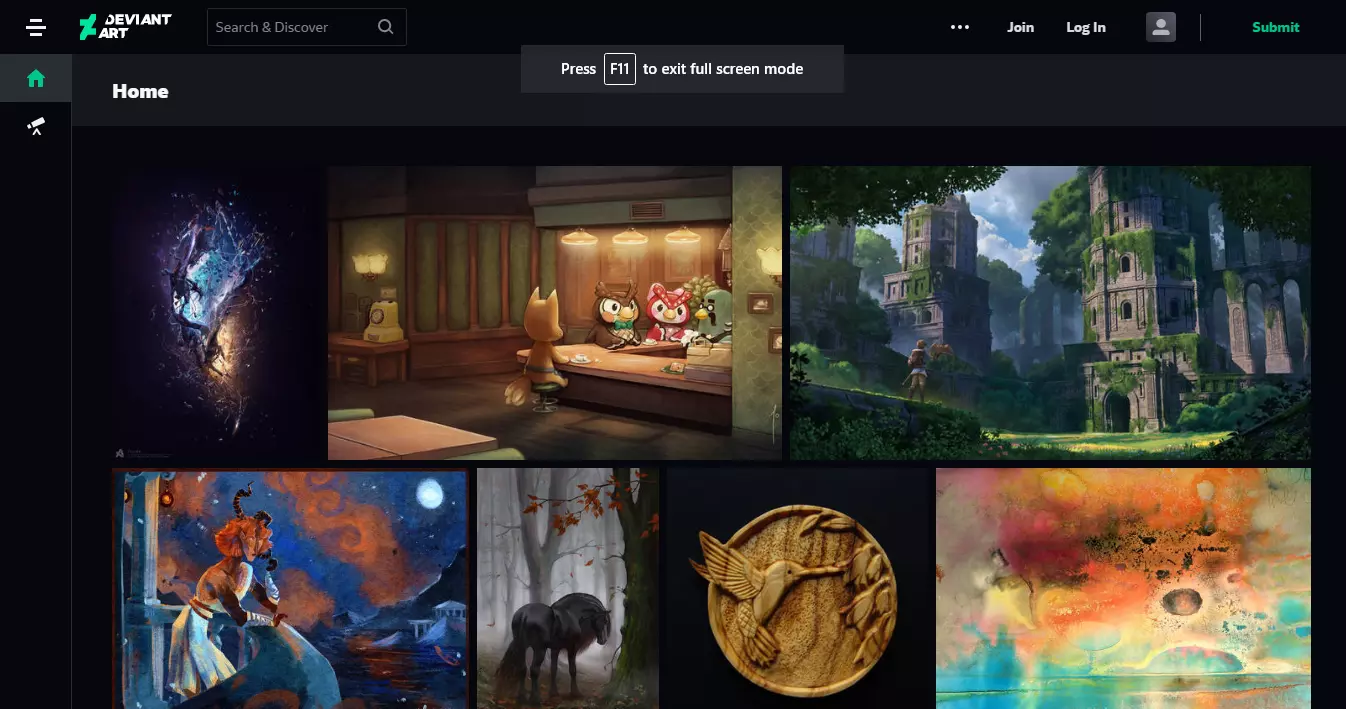
Launched in 2000 as a space for artists to show off their work, DeviantArt is one of the oldest and largest online art communities. DeviantArt is very visual and has its own unique look that sets it apart from other platforms.
Pros
- People use this platform to show their art and make money.
- Deviantart Muro is a bonus that lets people create art when they’re on the go.
Cons
- Many creators who post content on Medium need a few submissions before they can get noticed.
7. Ello
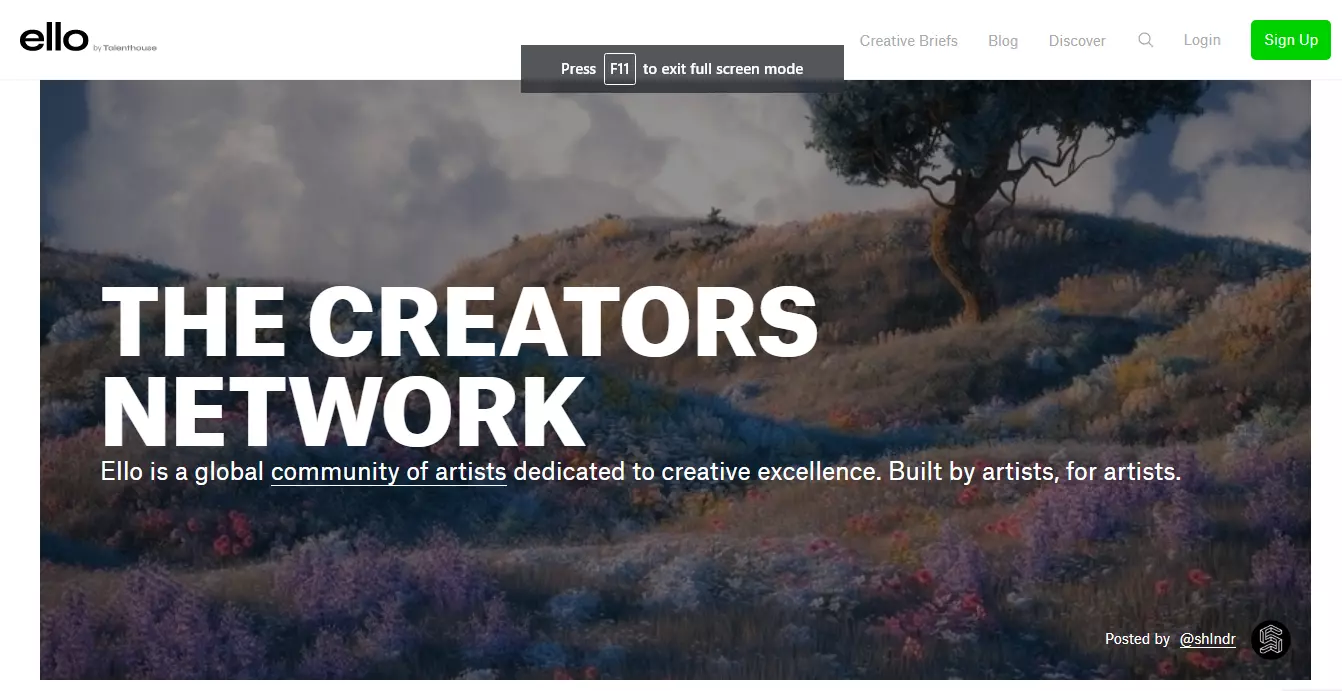
One of my favorite new social networks, Ello is like a beautiful and ad-free version of Pinterest. It allows you to share your thoughts in your own words with a built-in word processor. The format is similar to Twitter, with a 140-character limit per post.
Pros
- It has options to sell art
- No ads
- You can publish any type of content to the platform (e.g., articles, pictures, videos)
Cons
- Lack of User Interface customization
8. Mastodon
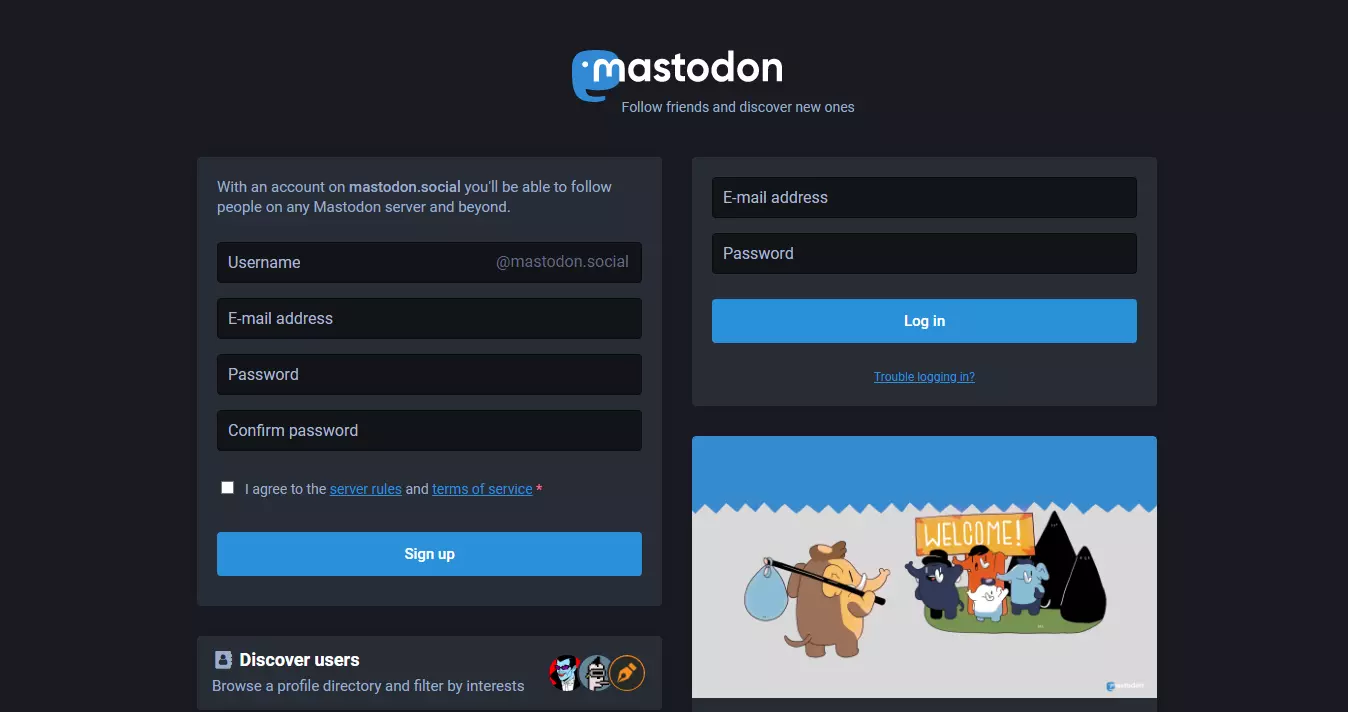
Looking for a decentralized, open-source, Fediverse platform that is cross-posting friendly? Try Mastodon. On Mastodon, users control their data and are free to build a following of people interested in whatever they want: tech, music, gaming—you name it. But don’t let its niche status keep you from trying it out; Mastodon has been gaining a steady stream of new users over time.
Pros
- Virtually There are no restrictions on content types.
- Open-source networks can allow better collaboration.
- It also supports keyboard shortcuts
Cons
- Platforms can come with a steep learning curve
9. NewGrounds
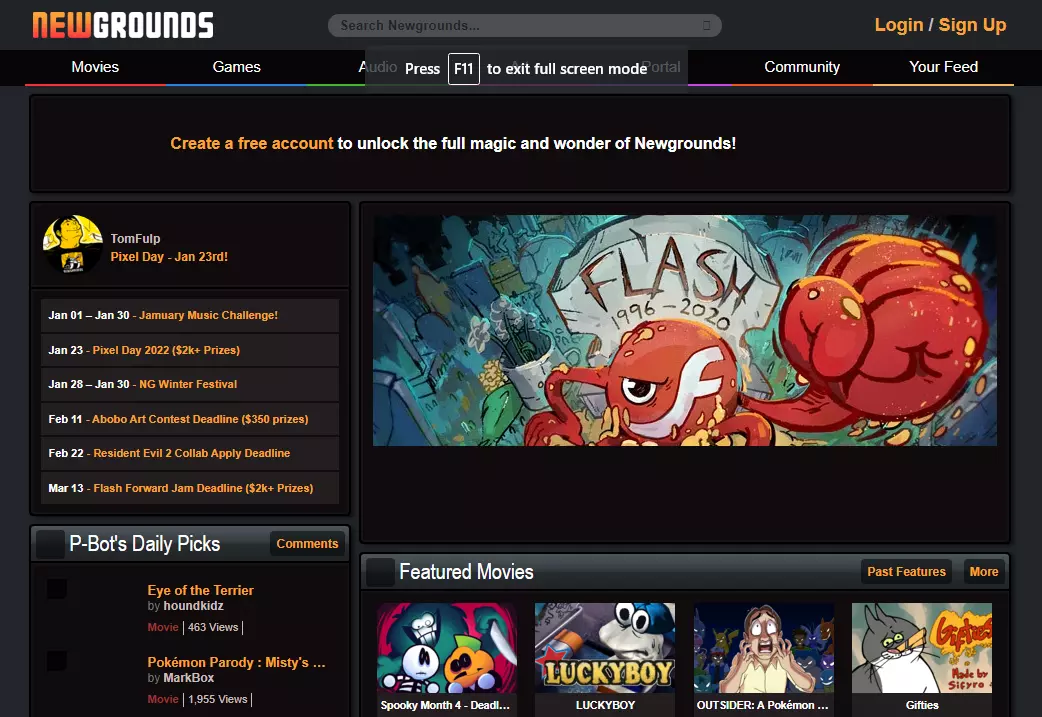
People are starting to get sick of traditional social media. NewGrounds is an exciting new development in social media that’s still in its early stages. The layout of each post is unique, and you can find communities on all sorts of niche topics. Some people miss some of Tumblr’s features (e.g., reblogging, liking posts), but if you’re looking for a truly fresh way to experience content creation and community sharing, give NewGrounds a try.
Pros
- The platform provides different types of media content in tabs for Movies, Games, Audio, and Art.
- You can create almost any kind of content with it.
- The “Community” tab will allow you to post questions and get feedback from other users.
Cons
- The platform’s video player does not work occasionally
- According to the rules of the site, only animated videos can be uploaded.
- Only animations are allowed
10. Pillowfort
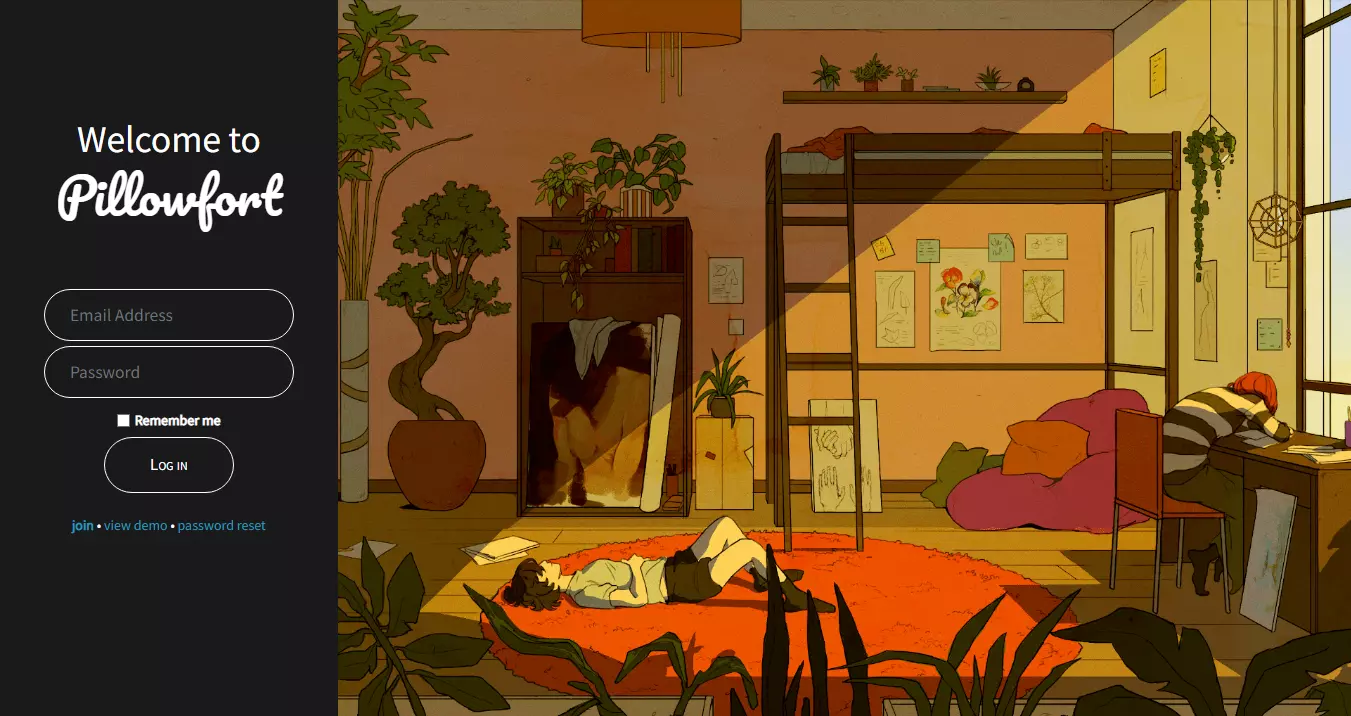
Created by Australian startup founder and entrepreneur Meron Gribetz, it’s been around since late 2014 and claims to be privacy-friendly. It also has a user base of about 15 million users. Similar to WordPress, Pillowfort gives you complete control over your website content, though you have to know how to code. It is ad-free but takes a subscription fee of $2 per month for full access.
Pros
- The Home feed is a Tumblr-like feed.
- You can restrict your feed to only show posts that avoid certain words or are about certain topics.
FAQs
Cons
- Open beta registration is free. The fee for selected features will be $5
- It can be challenging to create vibrant communities.
1. What are NSFW Posts?
2. What killed Tumblr?
3. Do people still use Tumblr?
4. What to use instead of Tumblr?
5. What is the best replacement for Tumblr?
Final Words
These are the best Social Media platforms for microblogging. The best alternative to Tumblr should be a very similar but less restricted or totally unrestricted platform. Tumblr replacement can be done by any of the above-mentioned micro-blogging platforms.
We hope you enjoyed our post on the 10 best Tumblr alternatives in 2022. We are always excited when we are able to post on such a wide variety of topics but sometimes it can be difficult to find a balance between them. Do you have any suggestions on what topics we should focus on more? If you enjoyed this post, please be sure to share it with your friends and family!
Spread the love
Hi there,
Cheers for the nice list of tumblr alternatives, it makes a nice and interesting read.
May i suggest yet another alternative called Thumbtable at thumbtable.com . It’s brand new and includes a few demo links on the front page.
Feel free to consider it.